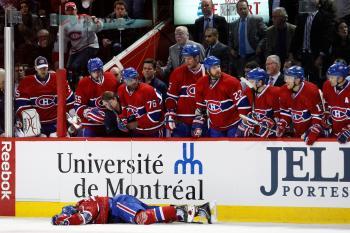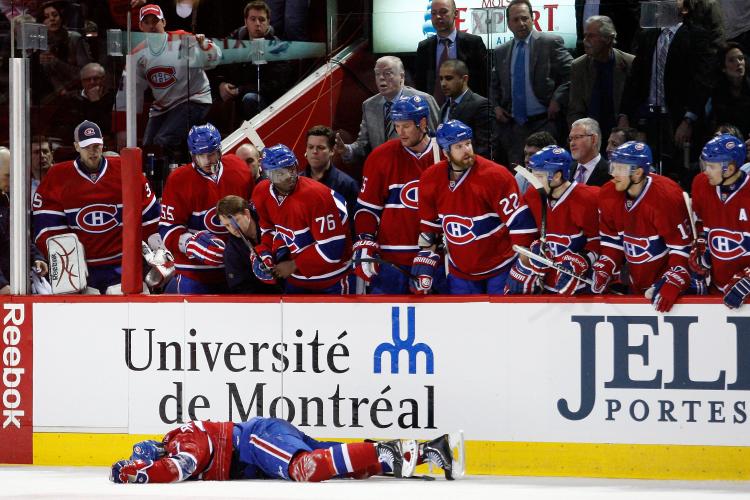Based on the controversial hit by Boston Bruins defenceman Zdeno Chara on Montreal Canadiens forward Max Pacioretty, the poll found that a whopping 85 percent of Canadians are aware of the hit, and 25 percent say they will change their viewing habits because of it.
“Fans are fed up and they are signalling that they will change the channel if substantive changes aren’t made,” says Jaime Watt, chair and senior partner of Navigator Ltd, the Toronto-based public relations firm that conducted the poll.
“[The poll] not only reflects disgust at what happened in Montreal but an accumulation of frustration that likely began when hockey’s biggest superstar Sidney Crosby was sidelined after a dangerous play.”
Pittsburgh Penguins captain Crosby has been off with a severe concussion since Jan. 5 after being driven into the boards by Lightning defenceman Victor Hedman. He had also taken a hard hit a few days earlier on Jan. 1.
Canadians Fed up With Hockey Violence, Poll Finds
One-quarter of Canadians say they will change their viewing habits because of the controversial hit by Zdeno Chara on Max Pacioretty.

Montreal Canadiens Max Pacioretty lies motionless on the ice after being hit into a support post by Boston Bruins Zdeno Chara in Montreal on March 8. The National Hockey League came under attack from all sides in the wake of the hit as fans, sponsors, and politicians expressed outrage at the rising levels of violence in the sport. Richard Wolowicz/Getty Images

Joan Delaney
Senior Editor, Canadian Edition
|Updated:
If a new poll is anything to go by, Canadian hockey fans have had enough of violence in the national sport.





